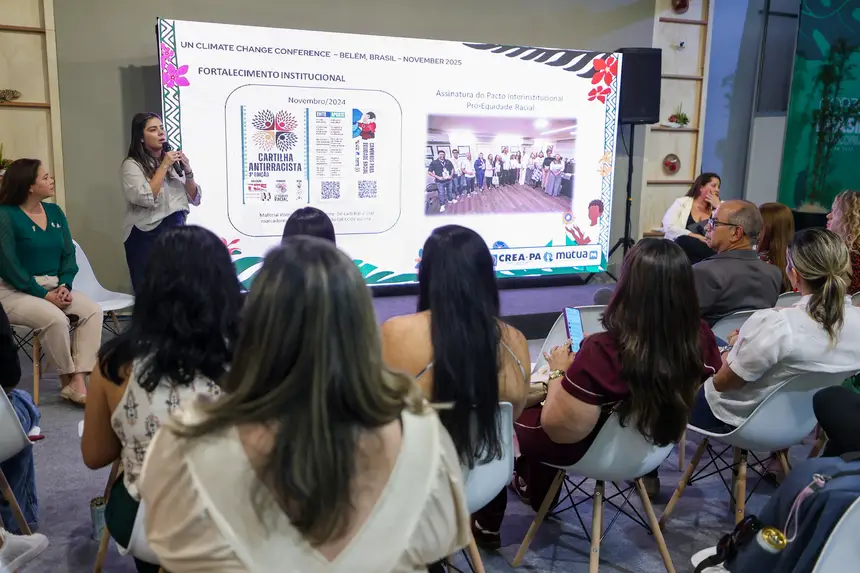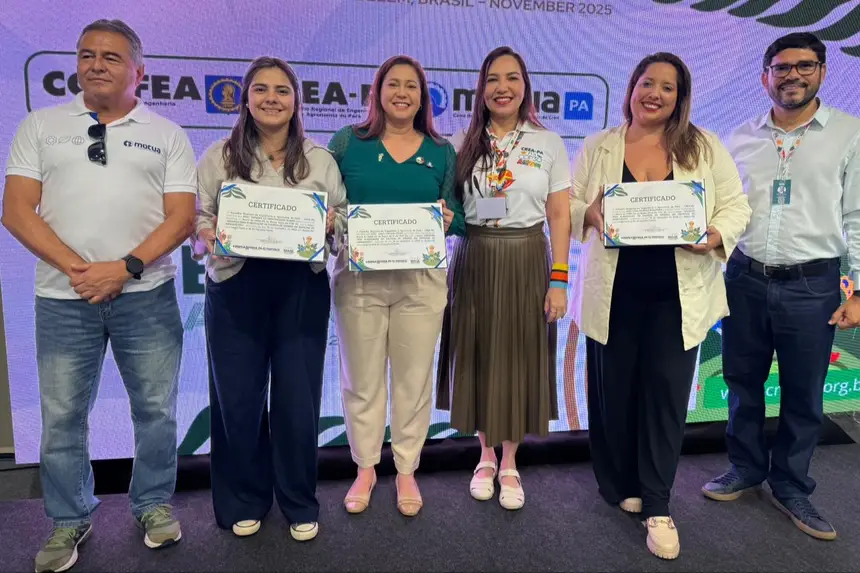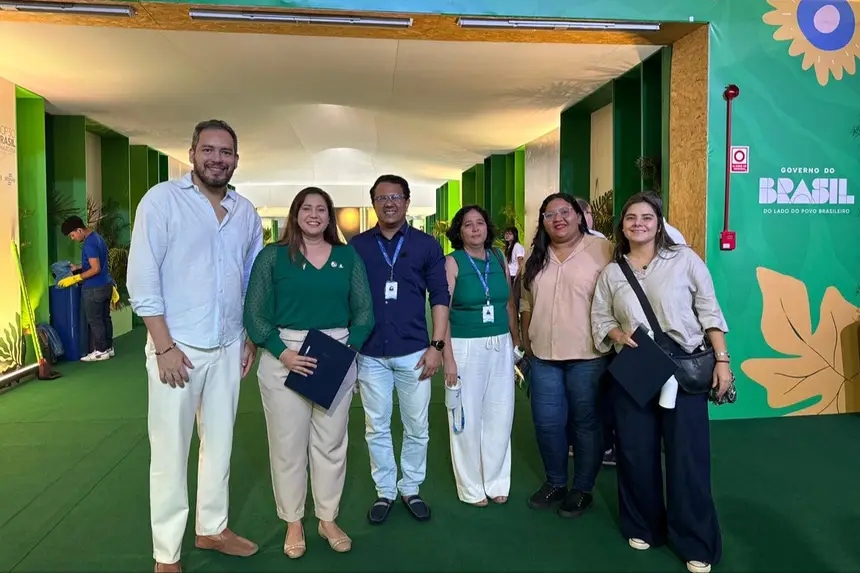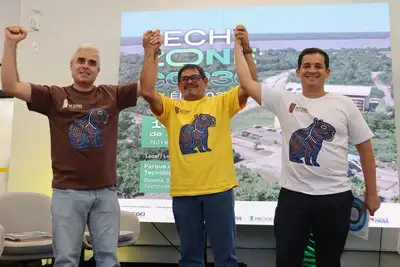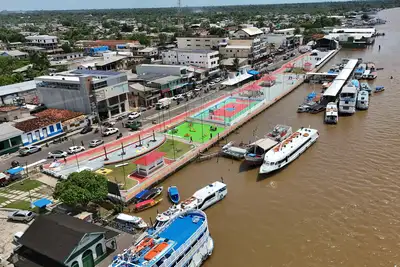Cosanpa presents advances in Gender Policy at a panel in the Green Zone of COP 30
At the Crea-PA booth, the Company detailed internal and community actions that strengthen equity, violence prevention, and women's leadership in sanitation

The Pará Sanitation Company (Cosanpa) presented, this Friday (14), at the Crea-Pará booth in the Green Zone of COP30, the panel "Implementation of Gender Policy at Cosanpa". The discussion addressed the construction of the policy, the ongoing institutional diagnosis, and the internal and community mobilizations that have been expanding the confrontation of gender inequalities in basic sanitation, a sector that particularly impacts women's lives.
The initiative is aligned with the guidelines of SDG 5 (Gender Equality) from the UN and has already resulted in 34 actions carried out since August 2024, involving 482 participants among employees and residents of communities near the Prodesan Pará works, with 75% being women and 25% men.
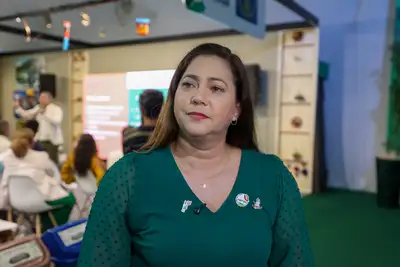
Engineer Tatiana Costa, coordinator of the Pará Sanitation Development Program, emphasized that the development of the policy is one of the goals of Prodesan Pará and represents an advance within a historically male-dominated sector.
“Engineering and sanitation are still environments with a strong male predominance. Therefore, bringing the gender equity agenda into the company and presenting it in the space of Crea-Pará, within a UN conference, has great symbolism,” she reinforced.
Tatiana also highlighted that gender inequality becomes more evident when observing the impact of water scarcity on domestic routines. “When we think about who manages water at home, who takes care of cleaning, food, and family routines, we are mostly talking about women. Therefore, the lack of supply directly affects them. Prodesan Pará has been bringing this debate to communities and to the monitoring committees of works, which are mostly composed of women today,” she explained.
The sub-coordinator of Institutional Strengthening, Gender, and Communication of Prodesan Pará, Natasha Vasconcelos, highlighted that the policy is being built participatively, involving both employees and the population served. She explained that the actions include lectures, workshops, and educational activities on gender violence prevention in communities and schools located in the area of Prodesan Pará's operations.
According to Natasha, the goal is to increase knowledge about women's rights and stimulate a cultural change in environments where inequality is still normalized.
Natasha also emphasized that the gender policy is not limited to women: “Gender policy is not a work 'about women', it is about how women and men experience spaces. It is about transforming structures that have historically excluded, silenced, and made vulnerable. Within the company, we are conducting interviews, focus groups, and an institutional diagnosis that will identify the obstacles to the retention and advancement of women, as well as the necessary normative changes to ensure a safe and inclusive work environment,” she concluded.
In addition to advances in gender policy, Cosanpa has also strengthened its commitment to racial equity, following the signing of the Pact for Racial Equality in November of last year. The initiatives include educational actions, distribution of anti-racist materials, and greater articulation with the network of support for women in situations of violence, contributing to consolidating a process of institutional strengthening.
About Prodesan Pará - Prodesan is a multi-project initiative that includes water supply and sewage works in Belém, Ananindeua, and Marituba, benefiting over 1 million people. Among the planned interventions are the implementation of new pipelines, distribution networks, intradomiciliary connections, and the construction of a new Sewage Treatment Plant.
The goal is to modernize and expand the sanitation system, ensuring more efficient service and better quality of life for the population. Prodesan also foresees investments in technological innovation and operational efficiency of Cosanpa.


